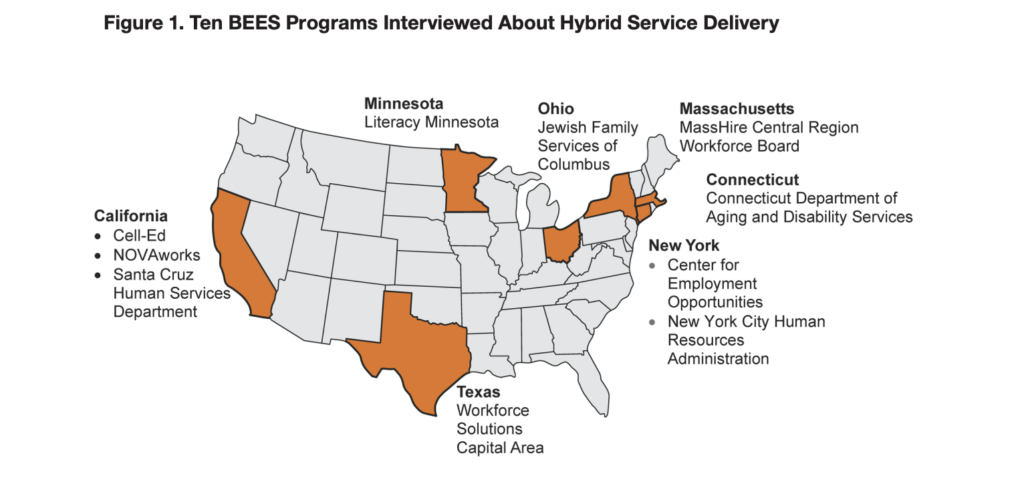
Unlocking the Power of Employment and Training Services Through Technology: Findings from MDRC’s BEES Initiative
As a leading mobile-first learning platform, Cell-Ed is committed to advancing digital equity and empowering underserved communities through education and workforce training. Ensuring evidence based approaches and collaboration is key to our approach. One example is our participation in MDRC’s BEES (Building Evidence on Employment Strategies for Low-Income Families) initiative, which recently published significant findings.
The BEES initiative is a research-driven effort aimed at identifying and evaluating effective employment strategies that support low-income families. By researching workforce development agencies, government entities, and educational platforms like Cell-Ed, BEES provides insights on what works to help individuals secure meaningful employment, boost earnings, and overcome systemic barriers.

Key Programs in the BEES Study
Partners evaluated under the BEES initiative each contribute unique expertise in providing training, support, and job placement for vulnerable populations. Key programs include:
- Texas Workforce Solutions Capital Area: Connecting job seekers with employment opportunities in Texas.
- Santa Cruz Human Services Department: Providing essential social services to the local population.
- NOVAworks: A workforce development agency offering career services and job training.
- New York City Human Resources Administration: Delivering employment services and financial assistance to New Yorkers.
- MassHire Central Region Workforce Board: Supporting job training and employment services in Massachusetts.
- Literacy Minnesota: Focusing on improving literacy and workforce readiness.
- Jewish Family Services of Columbus: Offering a range of employment and social support services.
- Connecticut Department of Aging and Disability Services: Offering employment services for older adults and individuals with disabilities.
- Center for Employment Opportunities (CEO) New York: Offering reentry employment services to formerly incarcerated individuals.
- Cell-Ed: A mobile-first platform delivering education and job skills training.
By offering a breadth and depth of innovative digital solutions with comprehensive wraparound support, we collectively aim to reduce barriers to employment and foster economic mobility for low-income individuals and families.
The Role of Technology in Workforce Development
The pandemic accelerated the need for remote and hybrid services, making technology more essential than ever in workforce development. MDRC’s recent blog showcases how digital tools, like Cell-Ed’s platform, enabled continuous access to job training and support during the pandemic. However, it also revealed the digital divide, reinforcing the need for ongoing investment in digital literacy and access.

Key Takeaways for the Future
- Hybrid Models: Post-pandemic, hybrid models of service delivery—combining in-person and online services—will remain crucial. Mobile-first platforms like Cell-Ed are key to reaching those who lack access to traditional learning opportunities.
- Collaborative Support: Partners such as Texas Workforce Solutions Capital Area and NOVAworks show that collaboration between workforce providers and employers is essential to ensuring that training aligns with labor market needs.
- Digital Literacy: As seen in partnerships with Literacy Minnesota, digital literacy has become a critical skill for job seekers, making programs like Cell-Ed’s mobile learning platform indispensable in today’s workforce.
Conclusion: Building a More Inclusive Workforce
The findings from MDRC’s BEES initiative and the adoption of technology during the pandemic underscore the importance of flexible, accessible, and collaborative employment strategies. By working with a diverse range of partners, from local workforce boards to mobile-first education platforms like Cell-Ed, the BEES initiative is helping to build a more inclusive, resilient workforce for the future. For more detailed insights, exploreMDRC’s recent blog and Innovations in Hybrid Service Delivery report.
If you’d like to learn more about how you can enrich your community by partnering
with Cell-Ed, click below to get started.

